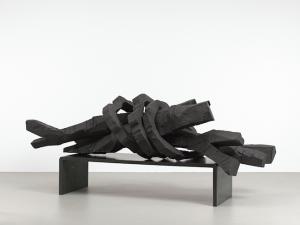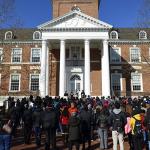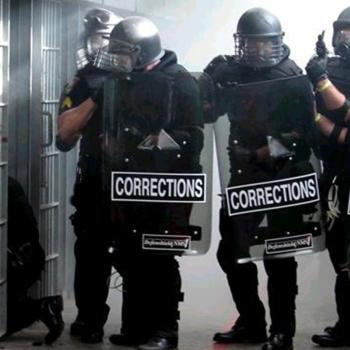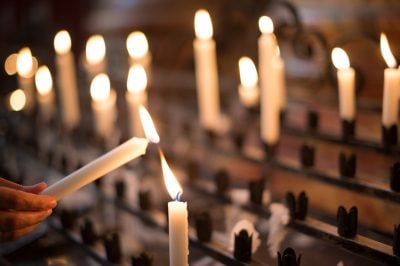Over the years the people I have met who “deconstruct” their faith have lived under the sway of “fundagelicalism”. Fundagelicalism is that expression of the Christian faith which weds an emphasis on a personal relationship with Christ to rigid legalism and an inerrantist approach to Scripture.[1]
The correlation between fundagelicalism and the deconstruction movement is not surprising. Fundamentalism presents itself as the one and only faithful and orthodox expression of the Christian faith. Churches associated with it impose a strict code of belief, practice, and behavior on their members, and those who dissent from those norms are often sanctioned and exiled from their communities. This inevitably leaves dissenters with little choice but to deconstruct the only theological and experiential set of categories that they know.
In historical terms, however, fundagelicalism is a relatively new approach to the Christian faith, when measured against the larger history of the church. And because it diverges from older forms of American evangelism and from English evangelicalism in general, it occupies relatively few minds and hearts of Christians around the world. It is only its knack for populist promotion and some of its missionary efforts that might leave the impression that it is more important globally and historically than it really is. Evangelicals of a completely different stripe are undoubtedly frustrated by the way in which the knack for self-promotion and populist appeal has led observers who know that world to color the whole of evangelicalism with a fundagelical brush.
That said, the sectarian nature of fundagelicalism has cut itself off from the sacramental, spiritual, intellectual, and pastoral depth of the larger Christian experience and, in particular, the Orthodox, Catholic, and Anglican traditions.[2] It is impossible to describe all that the fundagelical experience is missing. But even a brief audit of what is invisible to those who grow up as fundagelicals includes:
- an appreciation of the literary diversity, historical context, symbolic language, and rich complexity of the Bible;
- over two millennia of worship, spiritual practice, and reflection;
- an intellectual tradition that provides a much more credible foundation for Christian understanding, including a far healthier relationship with the contribution of science to human understanding;
- and a more nuanced approach that those traditions take to pastoral care, where the complexity of the Christian experience is not reduced to a handful of litmus tests.[3]
That those contributions are missing from the fundagelical tradition is not surprising. The very nature of life in fundagelical communities forecloses on exposure to other expressions of the Christian experience, either by “hiding” them from view or by labelling them as heresies of one kind or another. Even if you entertain those possibilities it is an invitation to divine justice. And if you grow up with a message that claims to be the oldest and most faithful presentation of the Christian faith but you lack the resources to explore the larger history of the church, it is all but impossible to shake free. Under those circumstances, deconstruction is the last, desperate alternative.
The problem with deconstruction, however, is that any faith or worldview built on a negative or a reaction to an existing worldview is typically inadequate:
- One, because it is difficult to build an affirming faith, based upon negations. There are always larger or more basic questions that go unaddressed.
- Two, because in a faith built on negation, the defects in the faith that one deconstructs continues to dictate the agenda. So, the new faith one embraces is usually distorted by painful experiences with the original version of faith that one is abandoning.
- Three, because in blind reaction to an untenable expression of religious commitments new philosophical commitments that are unexamined and untested.
- And, four, because a deconstructed faith is always haunted by the indictment lodged against it by its “faithful” adherents.
I have seen this tendency over and over again. People who are wounded by the communities of which they are a part adopt a patchwork quilt of faith, designed largely to combat the condemnation they have experienced or the cognitive dissonance they experienced, only to find themselves with a faith in which more basic questions go unanswered. Or they are so drawn to an alternative, that they fail to realize the liabilities of the new faith that they embrace. The result is often a person who is (to borrow a phrase from George Baselitz, the sculptor whose work is picture above) is “Nothing and No One”.
So, before you “deconstruct” your faith, consider “retrieving” the Christian faith. Explore other traditions within the Christian traditions that offer older, tested, and more dynamic expressions of that experience. And give yourself time to decide whether that might be a better way forward.
That which is new is not necessarily better.
[1] The term is not original with me, but I cannot confidently identify the person who originally coined it. The definition is my own. So, it may or may not correspond with the definition others use.
[2] I grant that what I am doing here is not “proving” that these traditions are superior to fundagelicalism. That effort is larger than can be worked out here. What I am trying to do is briefly call the attention of those who are disillusioned with the fundagelical experience to the larger contribution that the Christian tradition makes.
[3] That Catholics, the Orthodox, and Anglicans have not always been faithful proponents or disciples of these traditions is inevitable. This has nothing to do with the adequacy of those traditions and everything to do with human frailty.
The image is a scupture by Georg Baselitz, entitled “Nothing and No One”


















